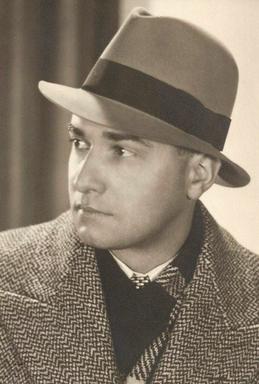Eugen Fink facts for kids
Quick facts for kids
Eugen Fink
|
|
|---|---|

Fink in 1929
|
|
| Born | 11 December 1905 |
| Died | 25 July 1975 (aged 69) |
Eugen Fink (born December 11, 1905 – died July 25, 1975) was an important German philosopher. Philosophers are people who think deeply about big questions like what life means, how we know things, and what is real.
Contents
Early Life and Education
Eugen Fink was born in Germany in 1905. His father worked for the government. For his first school years, Eugen lived with his uncle, who was a Catholic priest.
Fink went to a grammar school in Konstanz. He was known for having an amazing memory. After finishing school in 1925, he went to university. He studied many subjects, including philosophy, history, German language, and economics. He first studied in Münster and Berlin, and then in Freiburg. In Freiburg, he studied with a famous philosopher named Edmund Husserl.
His Ideas on Philosophy
Eugen Fink worked as an assistant to Edmund Husserl. He followed Husserl's ideas, which were part of a way of thinking called phenomenology. This is a type of philosophy that looks at how we experience the world.
Later, Fink was influenced by another famous philosopher, Martin Heidegger. Fink thought about the big question of "Being" – what it means to exist. He believed that everything in the universe is always moving and changing, and that humans are a part of this huge cosmic movement.
Fink called philosophical problems "pre-questions." He thought these questions would lead to a deeper understanding of philosophy. He believed that by actively exploring these questions, we could find true philosophy.
Main Books and Writings
Eugen Fink wrote many books and articles about his philosophical ideas. Here are some of his important works:
- Vom Wesen des Enthusiasmus (1947)
- Alles und Nichts (1959)
- Spiel als Weltsymbol (1960)
- Nietzsches Philosophie (1960)
- Metaphysik und Tod (1969)
- Heraklit. Seminar mit Martin Heidegger (1970)
- Erziehungswissenschaft und Lebenslehre (1970)
- Natur, Freiheit, Welt : Philosophie der Erziehung (1992)
Books Translated into English
Many of Eugen Fink's works have been translated so that people who speak English can read them. Some of these include:
- Play as Symbol of the World. And Other Writings. (2016)
- Sixth Cartesian meditation. The Idea of a Transcendental Theory of Method (1995)
- Nietzsche's Philosophy (2003)
- Heraclitus Seminar with Martin Heidegger (1993)
- Conversations with Husserl and Fink by Dorion Cairns (1976)
- "Oasis of Happiness: Thoughts toward an Ontology of Play" (2012)
See also
 In Spanish: Eugen Fink para niños
In Spanish: Eugen Fink para niños
 | Kyle Baker |
 | Joseph Yoakum |
 | Laura Wheeler Waring |
 | Henry Ossawa Tanner |

